Tonight marks the end of this year’s Chanukah celebrations. As is the case with many celebrations around the globe, COVID-19 has caused religious communities to adapt the way they celebrate holidays and ancient traditions. In her research of London’s Jewish communities, Marina Sapritsky-Nahum writes about Chanukah’s public displays of celebration amidst a period of isolation and the lessons it holds for today.
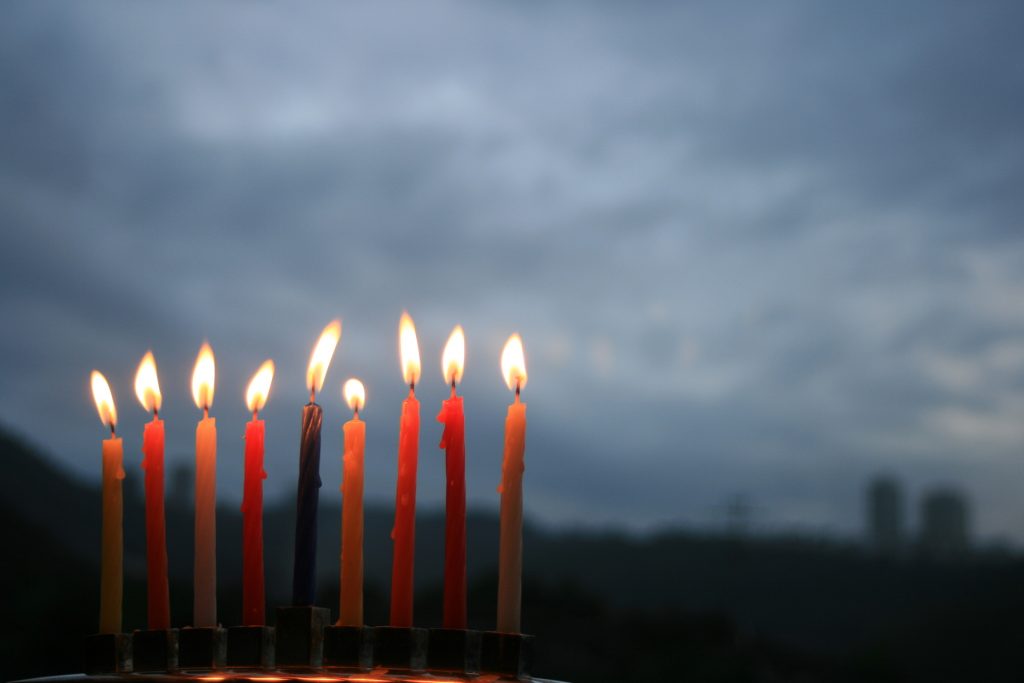
Driving my youngest son to school last week, I was amazed to see a large metal-framed Chanukah menorah (candelabrum) displayed on the grass at Tibbets Corner, a busy roundabout near Wimbledon Common. Public celebrations and gatherings organised annually for Chanukah have been greatly affected by Covid-19 restrictions, but the sheer visibility of Jewish symbols during the Holiday season and the socially distanced gatherings are heart-warming for many Jews who witness these miracles.
“Took my dog for a walk in the park; unexpectedly stumbled across 200ish local Jews lighting an outdoor menorah. Only another Jew who grew up in a place with hardly any Jews could understand the startling magic of that”, wrote Hugo Rifkind, a Times columnist, on Twitter. One Jewish interviewee said, “it made me feel so happy to see a Jewish holiday celebrated in public”. Another added, “it made me feel more integrated as a Jew in England”.
Chanukah is a well-known Jewish festival and a favourite holiday among assimilated Jews, mainly due to its proximity to Christmas. But its popularity and importance is actually a credit to an Orthodox Jewish organisation, Chabad Lubavitch, who have made it their mission to make Chanukah a public declaration of Jewish pride. “Celebrating Chanukah in public is like a Jew coming out of the closet”, explained one Chabad London rabbi.
Chanukah, otherwise known as the festival of lights, began on the evening of 10th December and ends tonight, 18th December. During the eight nights of festivities, Jewish families light candles on a nine-branch menorah as they recite Hebrew prayers and sing Chanukah songs. The idea is to “spread light and hope amidst the darkness”, physically kindling a flame in the darkest period of the year and spiritually battling challenges with an act of positivity.
Relating the Chanukah message to the pandemic, another London rabbi draws parallels between the Chanukah story and the reality of this year: “Covid has caused great physical, emotional, mental, financial and domestic crises but we must remember that we need to focus on positive actions. You don’t fight darkness with the broom, you light a candle.”
Each night, a new candle is lit, games are played (like dreidel, a traditional Yiddish spinning tops game), gifts are exchanged, oily foods like jam-filled donuts (sufganiyot) or potato latkes (pancakes) are eaten, and stories of Jewish survival and triumph are told. In light of the ongoing pandemic, Jewish organisations have provided an abundance of online programmes for children and, similar to this year’s Passover celebrations that London’s Jews experienced in isolation, many Chanukah celebrations include video-calls linking families unable to physically gather.
Despite its popularity among the greater Jewish population, Chanukah is a minor holiday in religious terms, and it does not have any of the prohibitions against using electricity or working that mark High Holy Days like Rosh Hashana and Yom Kippur. In fact, there is no mention of Chanukah in the Torah because it is believed that the events celebrated during Chanukah took place after the Torah was written. And yet, Chanukah has possibly become the most socially important celebration for modern-day Jews, revealing values of religious freedom, inclusion and diversity, where good conquers evil and a reminder that miracles do happen.
What exactly does Chanukah celebrate and why do we speak of a miracle? In the second century BCE, King Antiochus IV Epiphanes outlawed the Jewish religion and forced Jews to pray to Greek gods. In 168 BC his army descended upon Jerusalem, massacred thousands of people and desecrated the Second Temple, erecting an altar to Zeus in its place and sacrificing pigs on the altar.
Hanukkah celebrates the victory of a small group of Jewish men, the Maccabees, who against all odds fought the most powerful army of the ancient world, driving the Syrian-Greek troops out of Israel and rededicating the Holy Temple. The word Chanukah, in fact, means dedication. According to the story of Chanukah, when the Holy Temple was rededicated there was only enough olive oil left to light the Temple Menorah for one night. Miraculously, the flames stayed lit for eight nights, allowing time for more oil to be made and purified.
Jewish scholars draw many lessons for modern times from the story of Chanukah. The late Rabbi Sacks also reminded Jews that Chanukah teaches the paramount lesson of victory by the few over the many, the weak over the strong. The real victory, in his view, was not military but spiritual: “Never believe that a handful of dedicated people can’t change the world. Inspired by faith, they can. The Maccabees did then. So can we today”. During the public menorah lighting in Wimbledon, one rabbi’s speech highlighted that “each one of us is a candle and each one of us should give out light and warmth to those around us”. Such messages of resilience, kindness and hope are especially poignant when many lives have been disoriented and some destroyed and taken by the pandemic.
Some Jewish groups, such as Chabad Lubavitch UK, erect public menorahs in an act of “publicising the miracle”. Following the lead of Rabbi Schneerson, who initiated the Hanukkah-awareness campaign in 1974, the first public menorah was erected in Leeds in 1985, shortly followed by a 32-foot menorah in Golders Green, which is still used today. Since then, other public menorah lightings involving UK politicians and celebrities have become commonplace, signalling to Jews that their “winter holiday” matters. Since 2007, the Giant Menorah placed in the middle of Trafalgar Square brought Chanukah and Anglo-Jewish life to another level of public recognition.
Although many public menorah lightings, including the Giant Menorah, were cancelled this year, others proceeded with limited numbers and social distancing. This year of all years and against all odds, Jews have “publicised the miracle” of Chanukah by streaming it globally and reminding fellow Jews and others not to lose hope, to believe in miracles, and to remain resilient.
Reflecting on the public Menorah lighting they attended one night at Wellington Arch, one family said, “it was very heart-warming to be at the lighting. There were around fifty people there and everyone was spread out, so we felt safe; and at the same time, it was really uplifting to be there together with others and see other families and even some elderly.”
One of the ideas behind public Menorah lightings is the pride in can inspire in Jewish onlookers. These encounters can even be quiet emotional, as one rabbi explained, recalling a woman at a Menorah lighting who burst into tears during the event. “She has never celebrated her Jewishness in a public space and that had such a powerful effect on her,” he recalled.
The final build-up to the eight nights of Chanukah was the UK’s Greatest Virtual Chanukah Celebration on 16th December. Online celebrations like this will not replace the real-life buzz of songs and dancing one would have seen before Covid-19, but it will, on the other hand, popularise the miracle of Chanukah all the more, creating a new virtual Jewish community of participants and onlookers.
Chanukah celebrations this year are unique, creative and for many joyous, but for some, a they will be a painful reminder of fragmented family structures, vulnerable and lonely relatives, and the absence of those lost to the pandemic. This year, more than ever, the Chanukah story of a miracle gives hope to Jews and others that light and love will overcome the darkness.
Note: This piece gives the views of the author(s), and not the position of the LSE Religion and Global Society blog, nor of the London School of Economics.


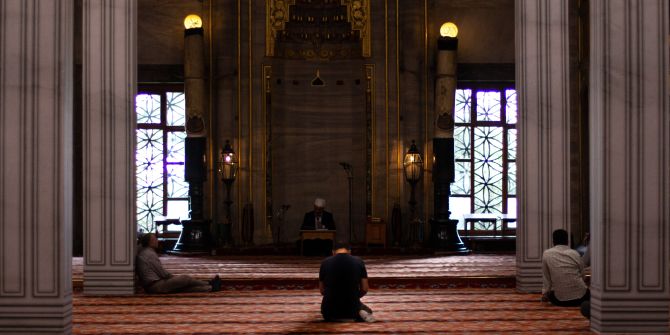
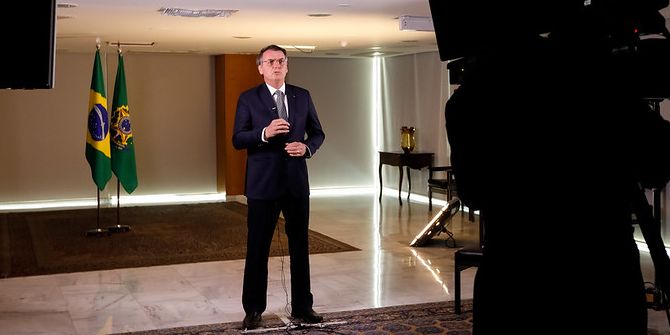
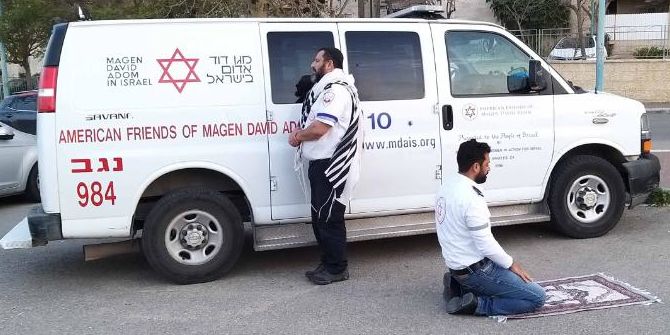
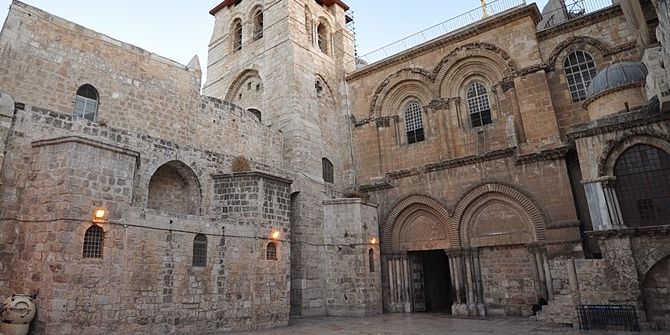
Beautiful and heart warming article!
Your post was very good, and it is very important to publish such post, it will help a lot for people. Many thanks to the author How many people do you need to start religion